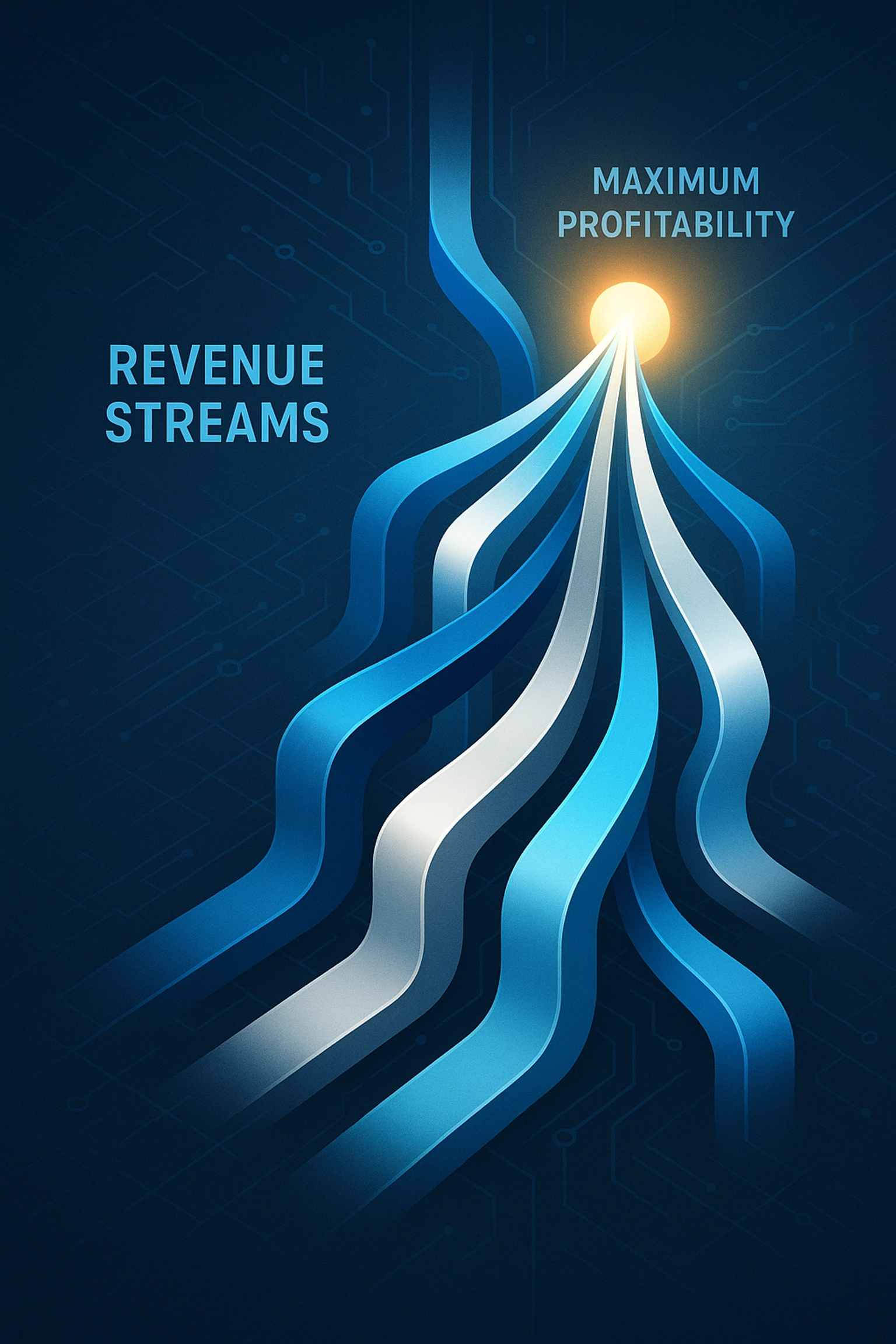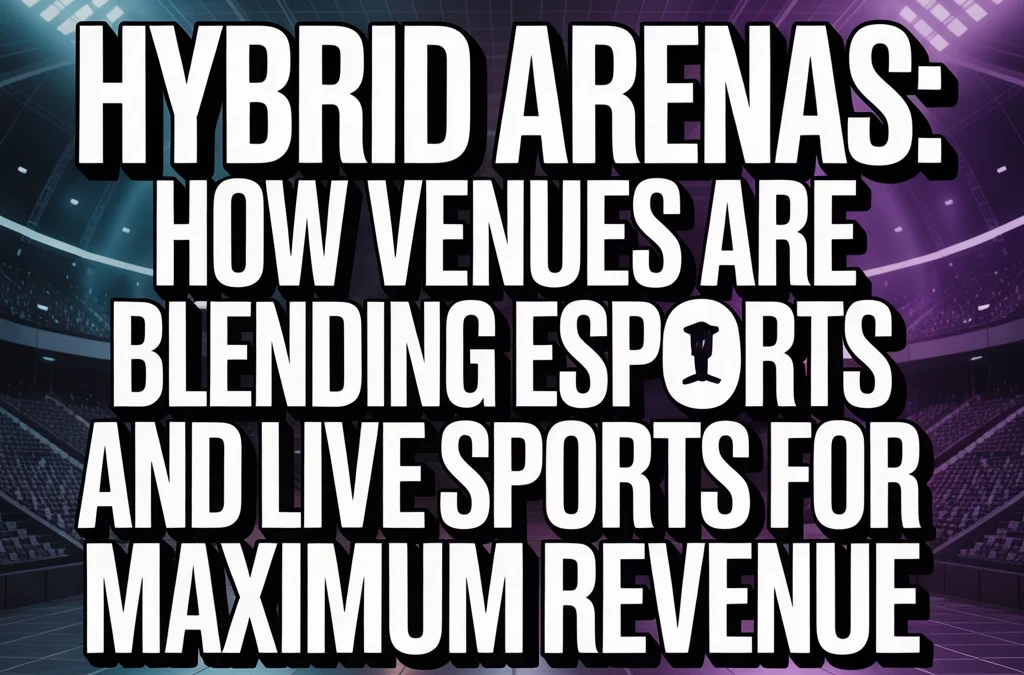The sports and entertainment landscape is experiencing a revolutionary transformation as venues across the globe embrace hybrid arena concepts. These innovative spaces strategically combine traditional live sports experiences with cutting-edge esports capabilities, creating unprecedented revenue opportunities and expanding audience reach beyond conventional boundaries.
Modern venue operators recognize that the future of sports entertainment lies in versatility and technological integration. By developing facilities that seamlessly accommodate both physical sporting events and digital esports competitions, forward-thinking organizations position themselves to capitalize on multiple revenue streams while maximizing facility utilization throughout the year.
The Technology Infrastructure Behind Hybrid Venues
The foundation of successful hybrid arenas rests on sophisticated technological systems that enable seamless transitions between traditional sports and esports events. Advanced display technologies, including large-scale LED configurations and projection mapping systems, allow venues to transform their visual environment based on event requirements.

Smart stadium implementations incorporate AR-enhanced fan experiences, comprehensive 5G wireless networks, and integrated digital ticketing platforms. These technological investments create the infrastructure necessary to support both in-person and remote audience engagement, ensuring maximum accessibility and revenue potential from every event.
Digital twin technology represents a game-changing innovation for venue operations. By creating detailed virtual replicas of physical stadiums, facility management teams can analyze visitor movement patterns, optimize sustainability measures, predict maintenance requirements, and continuously refine the overall experience. This data-driven approach directly impacts profitability by improving operational efficiency while enhancing customer satisfaction rates.
Live streaming capabilities integrated into venue design enable operators to monetize global digital audiences through premium content packages, virtual ticketing options, and targeted advertising opportunities. This approach transforms local facilities into international entertainment destinations with exponentially expanded market reach.
Revenue Diversification Strategies
Hybrid venues excel at generating multiple income streams from single facility investments. Traditional slow periods for conventional sports can now accommodate high-engagement gaming events, creating year-round revenue opportunities that significantly improve facility ROI.
The esports integration trend delivers measurable financial benefits, with many venues reporting substantial increases in both revenues and profits. Gaming events attract passionate, engaged audiences that represent valuable demographics for sponsors and advertisers seeking to reach younger, tech-savvy consumers.

Sponsorship opportunities expand dramatically when venues can offer partnerships that span both traditional sports and esports verticals. This dual-market positioning allows facilities to command premium rates while developing innovative partnership structures that maximize value for both venues and corporate sponsors.
Corporate hospitality packages can be restructured to include exclusive access to both live sports and esports events, creating premium experience tiers that justify higher pricing while delivering enhanced value propositions to business clients and VIP attendees.
Merchandise and concession strategies benefit from expanded product offerings that appeal to both traditional sports fans and gaming enthusiasts. This diversified approach increases per-attendee spending while building stronger brand loyalty across multiple entertainment categories.
Fan Engagement and Experience Enhancement
The hybrid arena model revolutionizes fan engagement by creating immersive experiences that blend physical and digital elements. Virtual reality implementations allow spectators to experience events from multiple perspectives, creating premium experience options that command higher ticket prices.
Interactive technologies enable real-time audience participation in both live sports and esports events, fostering deeper engagement while generating valuable data about attendee preferences and behaviors. This information proves invaluable for optimizing future events and developing targeted marketing strategies.

Social media integration capabilities allow venues to amplify event reach through user-generated content and real-time sharing, effectively turning every attendee into a marketing ambassador. This organic promotion extends event impact far beyond physical venue boundaries.
Multi-generational appeal represents a significant advantage of hybrid venues. By accommodating both traditional sports preferences and modern gaming interests, these facilities attract broader demographic ranges, increasing ticket sales and merchandise revenue across multiple age groups and interest categories.
Implementation Challenges and Solutions
Successful hybrid venue development requires careful planning and strategic investment in both technology and staff training. Venue operators must balance the technical requirements of esports events with the traditional needs of live sports, ensuring neither experience is compromised.
Staff training becomes crucial as employees must develop expertise in both traditional sports operations and esports event management. This dual competency requirement necessitates comprehensive training programs and potentially expanded staffing models.

Sound system design presents unique challenges in hybrid venues, as esports events often require different acoustic configurations than traditional sports. Advanced audio technology solutions enable venues to optimize sound delivery based on event type while maintaining exceptional quality standards.
Scheduling coordination becomes more complex when venues accommodate both sports and esports events. However, sophisticated booking systems and strategic planning can transform this challenge into a competitive advantage by maximizing facility utilization and revenue generation.
Future Trends and Market Opportunities
The convergence of physical and digital entertainment represents the future of sports venue economics. As virtual reality technology advances and metaverse applications expand, venues positioned at this intersection will capture significant value from the growing integration of physical and digital experiences.
Artificial intelligence integration will enhance both gaming experiences and facility operations, creating opportunities for personalized fan engagement while optimizing venue management. These technological advances will further differentiate hybrid venues from traditional single-purpose facilities.

Sustainability initiatives benefit from hybrid venue efficiency, as these facilities maximize usage while minimizing environmental impact per event. This alignment with corporate sustainability goals makes hybrid venues increasingly attractive to environmentally conscious sponsors and partners.
International expansion opportunities emerge as hybrid venues can host global esports competitions alongside traditional sports events, positioning facilities as destinations for international audiences and creating opportunities for tourism revenue generation.
Strategic Partnership and Implementation Support
The transformation to hybrid venue operations requires specialized expertise and strategic guidance. Successful implementation demands comprehensive understanding of both traditional sports venue management and emerging esports industry dynamics.
Professional consulting services become essential for venues seeking to maximize their hybrid potential while avoiding costly implementation mistakes. Expert guidance ensures technology investments align with business objectives while delivering measurable returns on investment.
At Dakdan Worldwide, our comprehensive expertise in sports, entertainment, and media positions us to guide venue operators through successful hybrid transformations. Our strategic consulting approach combines industry knowledge with practical implementation experience to help venues achieve their revenue maximization goals.
The future belongs to venues that embrace innovation while respecting tradition. Hybrid arenas represent the evolution of sports entertainment, creating opportunities for unprecedented revenue growth while delivering exceptional experiences that satisfy diverse audience preferences. Organizations ready to embrace this transformation position themselves for sustained competitive advantage in the rapidly evolving sports and entertainment marketplace.


Recent Comments